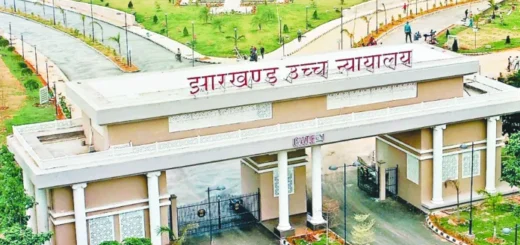Numerous Concerns About New Law: Supreme Court Reviews Challenges to BNS and BNSS Provisions.

The Supreme Court today addressed a petition that questions some parts of the new criminal laws. The court noted that new laws often bring about many “imaginary fears” and should be allowed to be tested in practice. A two-Judge Bench, made up of Justice Surya Kant and Justice Ujjal Bhuyan, was reviewing a Writ Petition from a retired Border Security Force officer. This petition challenges various aspects of the Bharatiya Nyaya Sanhita, 2023, and the Bharatiya Nagarik Suraksha Sanhita, 2023, under Article 32 of the Constitution. Justice Surya Kant remarked, “When something new is introduced, we often have fears and doubts. Sometimes, these fears are not based on reality. In practice, things may turn out differently.”
In response to the Petitioner, represented by Senior Advocate Menaka Guruswamy, who argued that some parts of the new laws lack necessary safeguards, Justice Kant stated, “Even with the old laws, there were many cases of misuse. Most of the time, those responsible were caught. This new law will also see misuse, regardless of safeguards. Judicial oversight will continue to be essential to prevent misuse of power.” The petition, prepared by Advocate Tushar Jain, challenges provisions related to organized crime and terrorism, claiming they mirror the Maharashtra Control Of Organised Crime Act, 1999, and the Unlawful Activities (Prevention) Act, 1967, without proper procedural protections.
Justice Surya Kant discussed the new criminal laws, stating that it should be evaluated whether they effectively prevent or reduce crime, or if concerns about misuse and rights violations are valid. Guruswamy pointed out that laws like the Maharashtra Control Of Organised Crime Act, 1999, and the Unlawful Activities (Prevention) Act, 1967, have been upheld by courts despite shifting the burden of proof to the accused, due to their procedural safeguards.
Justice Kant questioned whether the existence of safeguards in MCOCA means that Parliament is required to provide similar protections. He emphasized that the legality of the provision stands on its own and asked if BNS claims that Parliament is simply copying MCOCA. Guruswamy responded that the definitions are similar. Justice Surya Kant countered that it cannot be assumed Parliament merely copied; there is a strong presumption that they thoughtfully considered the implications of their decisions.
The petition also questions Section 152 of the BNS, which replaces the sedition law (Section 124A of the Indian Penal Code). It argues that the new law is broader and less clear. Additionally, it challenges Section 173(3) of the BNSS, which allows police officers to decide whether to conduct preliminary inquiries in cases with punishments ranging from three to seven years. It also contests Section 187(3) of the BNSS, which permits police to hold an arrested person for 60 or 90 days, depending on the crime. The Bench requested the Petitioner to create a table showing the specific changes made in the BNS and BNSS compared to the IPC and the Code of Criminal Procedure. The case is scheduled for further hearing on December 2.
Cause: Azad Singh Kataria v Union of India [W.P.(Crl.) No. 461/2024]








